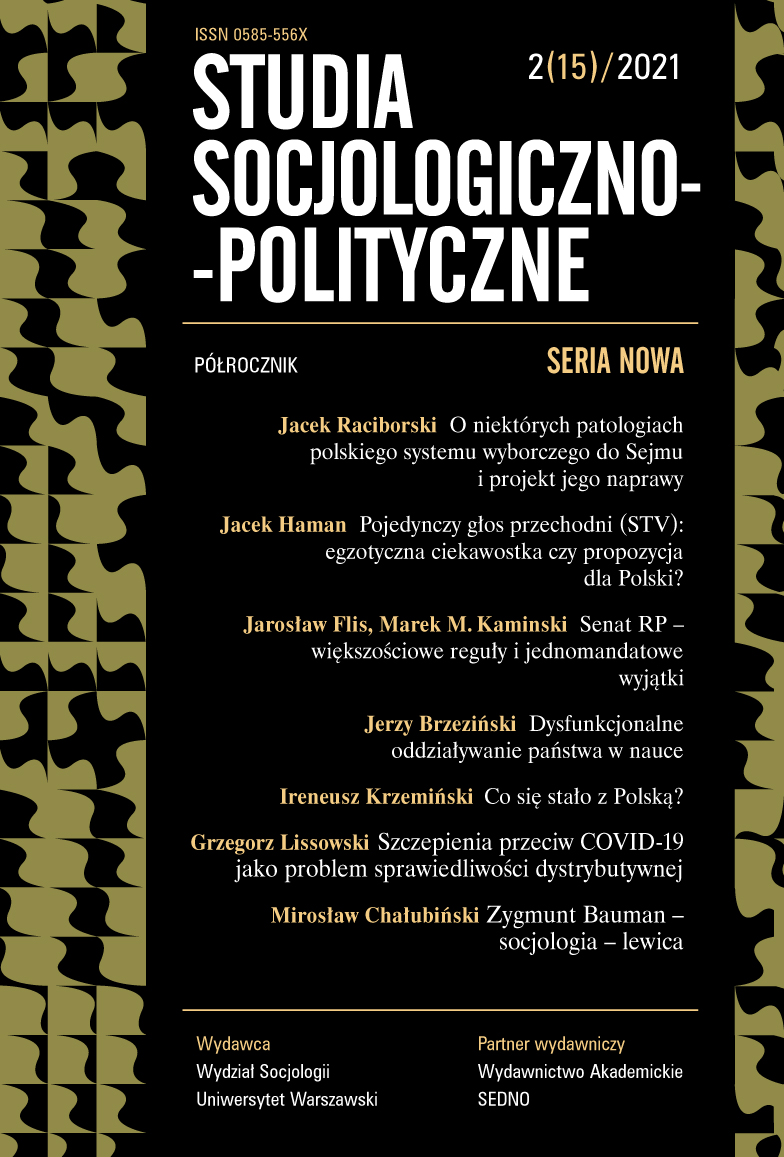Ekonomia polityczna „wyborczych autokracji”
Political economy of „electoral autocracies”
Author(s): Bartłomiej NowotarskiSubject(s): Politics / Political Sciences, Politics, Social Sciences, Political Theory, Political Sciences, Civil Society, Governance, Sociology, Government/Political systems, Electoral systems, Political behavior, Politics and communication, Politics and society, Social Norms / Social Control, Sociology of Politics, Globalization, Identity of Collectives
Published by: Wydział Socjologii Uniwersytetu Warszawskiego
Keywords: authoritarianism; electoral dictatorship; electoral democracy; political rent; transactional costs
Summary/Abstract: „Electoral autocracy” (electoral authoritarianism), as shared by other nondemocracies, consists of the political monopoly of power. However this monopoly is due to elections which always, in populist assumptions, should only confirm incumbents’ ruling legitimacy even when competetive. Why such regimes are so succsessful worldwidely in a contemporary period? The answer is not simple, but to some extent it is because of political rent-seeking and limited so called transactional costs, both beneficial for incumbents as well as for their strict followers, and as a result usually leading to the hegemonic party system. Because incumbents are able – thanks to the credibility of different stable social transfers – to build enough solid „selectorate” needed for repeated reelections. It is not difficult to guess that such relations bring important costs for the rest of the excluded part of society, very often a majority. The price of the electoral autocracy, seen in a longer perspective, will be paid by the whole society.
Journal: Studia Socjologiczno-Polityczne. Seria Nowa
- Issue Year: 17/2022
- Issue No: 2
- Page Range: 25-39
- Page Count: 15
- Language: Polish

